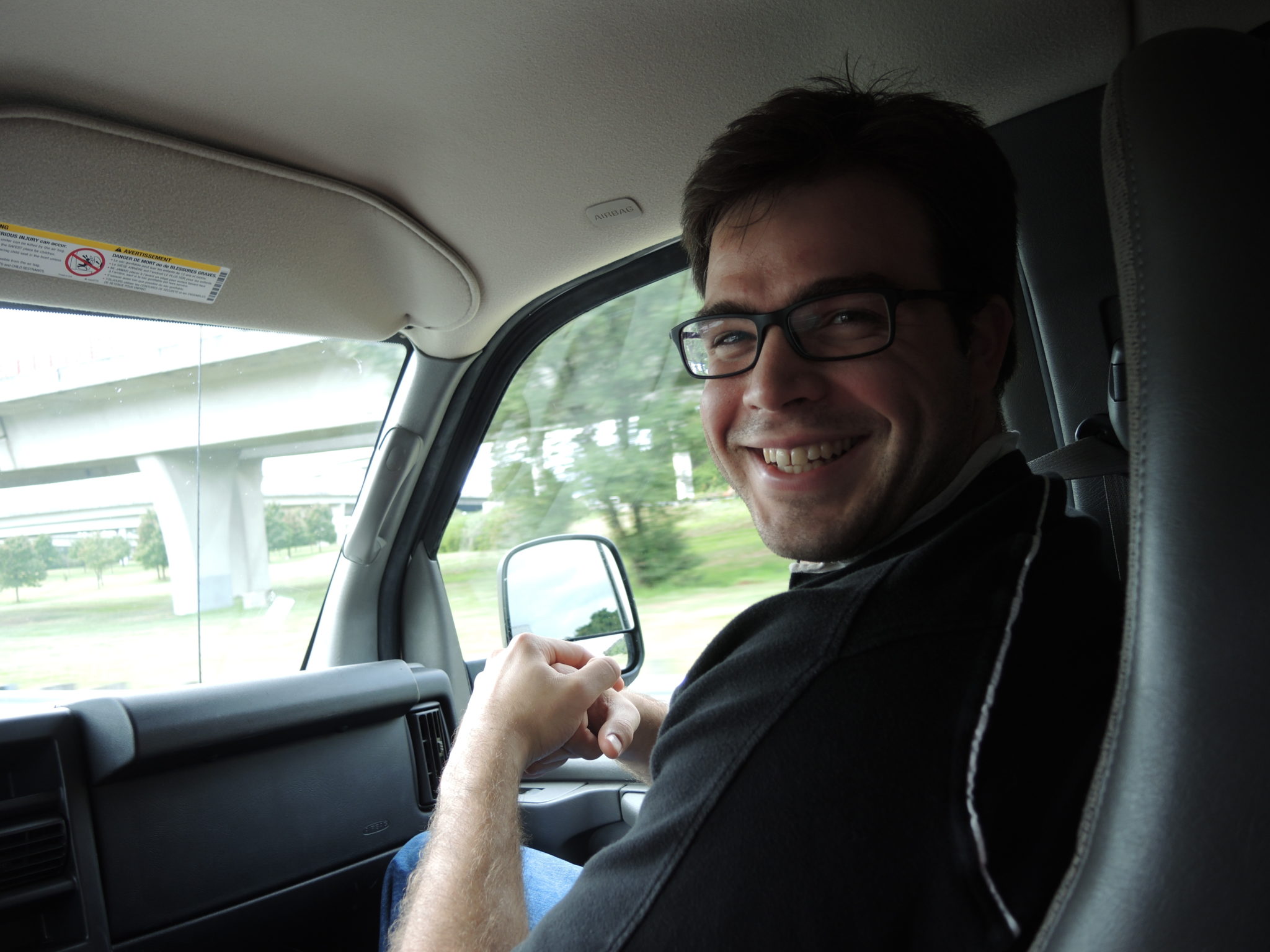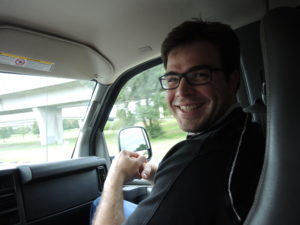
Rob McFeaters certainly isn’t the first professional to balance a full-time job, a family at home, and a hefty schoolwork load. But as an engineer, he puts that practical and problem-solving mind to good use.
“I work until five or six, come home, take care of the baby until he goes down around 7 or 8, then pick up my textbooks,” Rob says. “Babies his age don’t really understand words yet, so I read him my books before bed. It’s time-saving!”
A fire/explosion protection engineering consultant for Harrington Group, Rob is about halfway through the process of earning a Master’s in Fire Protection Engineering through Worcester (pronounced “Wooster,” as he quickly learned upon entering the program) Polytechnic Institute in Massachusetts. WPI is one of only a couple schools in the country to offer the degree with the option of distance learning, and for Rob, who’s based in Atlanta, the ability to take classes from afar while continuing to work full-time is crucial.
“It’s quite an undertaking, especially when you might expect 20 hours of work a week for a given class,” he says. “So it’s a matter of finding those opportunities where school and work might overlap. There’s definitely a benefit to having some professional work experience while also being in the classroom. A theoretical, hazy topic in the classroom put into practice becomes much clearer.”
A 2010 Georgia Tech graduate, Rob’s undergraduate degree is in chemical engineering. He describes fire protection as a “very specific niche” of chemical engineering, and not having fire protection-specific training left a knowledge gap. In the two years since entering the program, he’s found that the everyday hands-on work as an engineering consultant and the academic lessons through school complement each other nicely.
“I wouldn’t call it easy by any means, but there’s definitely a correlation between what you do and what you learn,” he says. “It makes it easier than trying to learn through practice alone or through school alone.”
For anyone considering the distance learning route while maintaining a full-time job, Rob has some advice:
“I would recommend taking a good stock of what kind of free time you have available,” he says. “Expect something along the lines of 20 hours a week for classes.”
Fire protection is already specialized enough, and the number of schools that offer online programs is even smaller. Here’s a roundup of schools around the country with distance learning options for associate’s, bachelor’s, and master’s degrees:
California Polytechnic State University – Master’s
Eastern Kentucky University – Bachelor’s
The University of Maryland – Master’s
The University of North Carolina at Charlotte – Bachelor’s
Worcester Polytechnic Institute – Master’s


